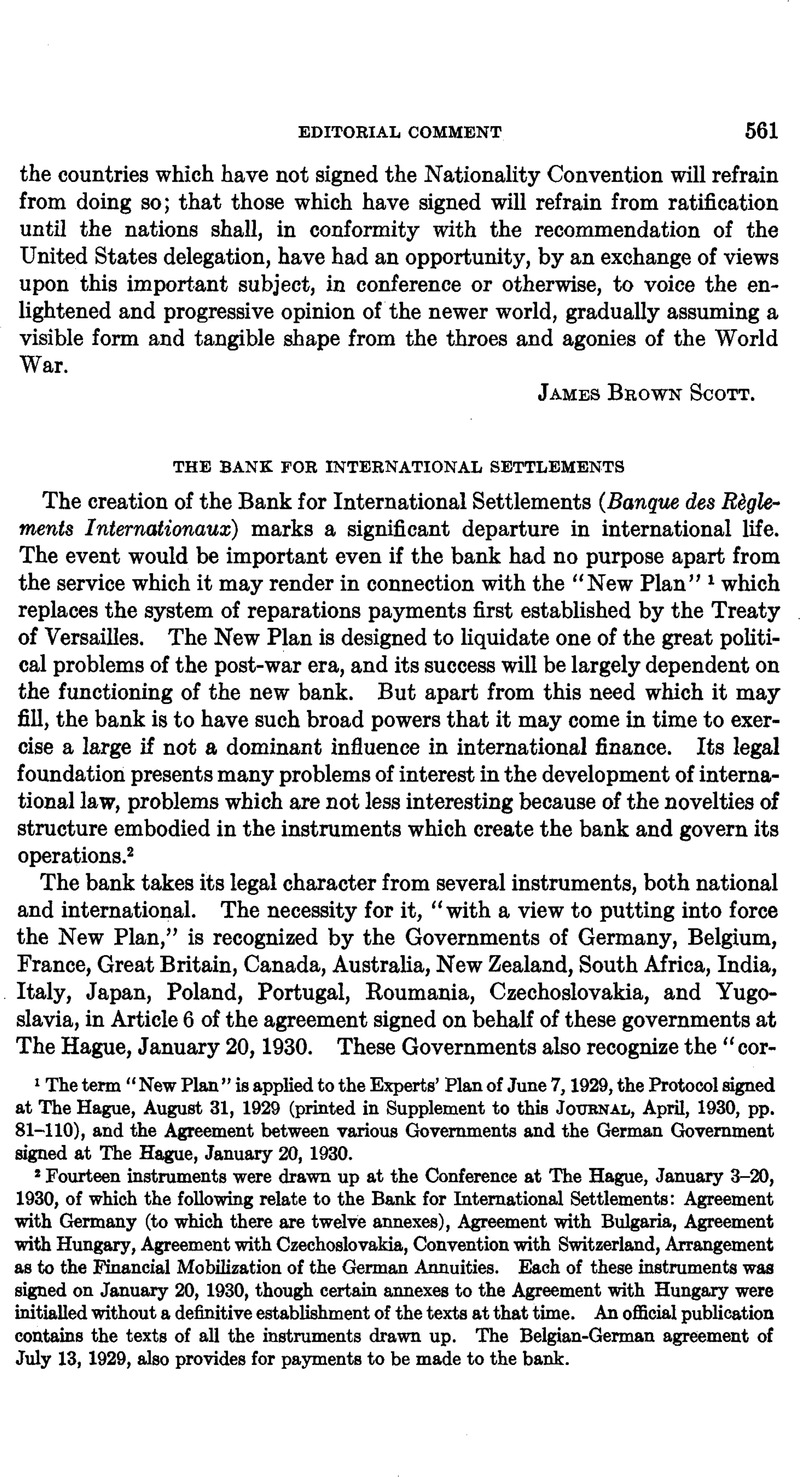Published online by Cambridge University Press: 04 May 2017

1 The term “ New Plan ” is applied to the Experts' Plan of June 7,1929, the Protocol signed at The Hague, August 31, 1929 (printed in Supplement to this Jotjknal, April, 1930, pp.81-110), and the Agreement between various Governments and the German Government signed at The Hague, January 20, 1930
2 Fourteen instruments were drawn up at the Conference at The Hague, January 3-20,1930, of which the following relate to the Bank for International Settlements: Agreement with Germany (to which there are twelve annexes), Agreement with Bulgaria, Agreement with Himgary, Agreement with Czechoslovakia, Convention with Switzerland, Arrangement as to the Financial Mobilization of the German Annuities. Each of these instruments was signed on January 20, 1930, though certain annexes to the Agreement with Hungary were initialled without a definitive establishment of the texts at that time. An official publication contains the texts of all the instruments drawn up. The Belgian-German agreement of July 13, 1929, also provides for payments to be made to the bank
3 In fact, the Yokohama Specie Bank
4 In fact, J. P. Morgan & Company, the First National Bank of New York and the First National Bank of Chicago.
5 Under a general definition, the Federal Reserve Bank of New York is to be regarded as in the position of a central bank for this purpose.